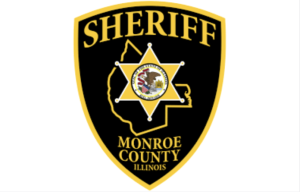Solar farm project revisited
Local development of a proposed solar farm is set to come to light again as the parties who pushed for such a project earlier this summer are renewing their efforts.
Per a petition for special use exception, the Chicago-based Monroe Sun LLC and Monroe Sun 2 LLC are seeking a permit for a “large solar energy facility” on a plot of land north of Maeystown Road to the southwest of Waterloo just outside city limits.
This is the same 117-acre plot – owned by Thor and Christine Lohrberg – that the Monroe Sun LLCs pursued previously to substantial backlash from the property’s neighbors.
The petition was originally signed and dated on Oct. 8.
Monroe County Zoning Administrator Chris Voelker confirmed the matter is set to be discussed by the planning commission at its meeting set for Dec. 4 at 7:30 p.m.
This matter originally made waves in Monroe County over the summer as the proposal was meant to be discussed during a meeting of the planning commission in June.
That meeting was canceled by Chicago-based Alexander Farkes, the individual to whom both Monroe Sun LLCs are registered.
Farkes similarly received a special use permit in Schuyler County in July 2024 for installation of 7,608 solar modules on a 70-acre parcel, with just under 15 acres “disturbed” for a projected output of three megawatts of electricity per year. That’s enough energy for over 1,000 typical residential properties.
With a brief break, the matter was again set to be brought before the planning commission and Monroe County Board of Appeals during August meetings, though the issue was left treading water before it resurfaced for this latest attempt.
While the wheels having simply been spinning on this solar farm proposal, the matter has gained traction among individuals living around the proposed site as many have passionately spoken against such a project in this county.
Social media objections to local solar farm concepts seem to center around concerns about environmental impact, issues with aesthetics, questions about the disposal of retired equipment and overwhelming disapproval of farmland being purchased by a business from outside the community and used for something other than farming.
As previously reported, opposition is likely to bear little fruit thanks to Illinois Public Act 102-1123, which was passed in 2023 and requires local governments to adopt solar and wind energy ordinances in adherence to new state standards which the bill outlines.
This legislation came about through the Illinois Climate and Equitable Jobs Act which passed in 2021 and seeks to “phase out” carbon emissions in the state’s energy and transportation industries by 2050.
The 2023 law also does much to remove the power of counties and municipalities to deny commercial solar and wind energy projects that conform to regulations imposed by the state.
Public Act 102-1123 states that a county may not implement zoning regulations which would prevent “commercial solar energy facilities from being developed or operated in any district zoned to allow agricultural or industrial uses.”
With these restrictions, public hearings on proposed installations are still mandated by law, and counties are also required to ensure construction standards are maintained. Counties must also oversee appropriate agricultural impact mitigation and plans for decommissioning equipment when a facility is no longer in use.
Local governments must also make developers deter adverse effects on roadways and drainage infrastructure that might come up as part of a large solar project.
Groundwater and runoff standards which need to be met by the owner or manager of a solar farm are also present in the bill.
Additionally, commercial projects on a county parcel located within 1.5 miles of an incorporated municipality may be subject to additional oversight, though a municipality can’t impose restrictions beyond state regulations.isited






